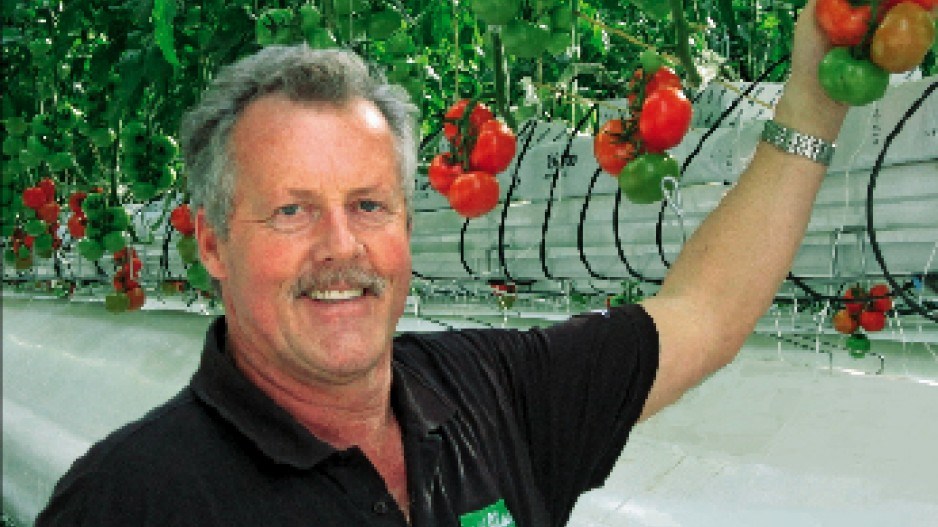Village Farms (TSX: VFF), one of the three largest greenhouse operators in Delta, has harvested its first crop of tomatoes in its $40 million state-of-the-art greenhouse in Monahans, Texas.
And unless the B.C. government changes the way it applies the carbon tax, the company’s CEO said businesses like his will continue to invest in the U.S. and not in B.C.
“We made a decision not to build [in B.C.] anymore because two years ago, [B.C.] was the first location in North America to put in a carbon tax,” said Village Farms CEO Mike DeGiglio.
“The big companies – like Village Farms, like Windset Farms – are all bailing out of Canada because the larger market is in the U.S., and now you have to deal with this carbon tax.”
Delta agribusinesses like Houweilings Tomatoes, Windset Farms and Hot House Growers (which Village Farms, an American company, bought in 2006), became innovators in greenhouse technology out of necessity: limited agricultural land and short growing seasons.
Over the years, they have developed high-tech approaches to growing food crops. Village Farms owns a 110-acre greenhouse in Delta, where it employs 600 workers, growing tomatoes, 80% of which are sold into the U.S.
But both Windset and Village Farms have been building their newest generation of greenhouses in the U.S., not Canada, and both cite B.C.’s carbon tax as a major disincentive.
Windset recently invested close to $100 million on a new 64-acre greenhouse in California, and in June 2011, Village Farms broke ground on its $40 million, 30-acre greenhouse in Texas.
While proximity to the U.S. market and longer growing seasons are factors, the $1 million annual tax bill that Windset expects it will be paying when the carbon tax reaches its maximum is one of the reasons the new generation of greenhouses are not being built in B.C.
“That is definitely a deterrent from building more greenhouses here,” said Windset Farms co-owner John Newell.
Greenhouses are energy intensive, and many burn natural gas, which now results in big carbon tax bills. Village Farms’ annual bill is $500,000, despite the fact it is burning landfill gas that would otherwise simply be flared.
Some of the CO2 gas that is burned is captured and used in the greenhouse (plants take in CO2 and produce oxygen).
“If it was based on emissions, it would be zero,” DeGiglio said of his tax bill. “Meanwhile, Mexico ships to British Columbia every day and doesn’t have one.”
DeGiglio said his industry has been lobbying the B.C. government to change the way the tax is levied. And although he said some strides have been made, the tax has already done its damage.
“Even if they were to reverse that now, you’ve probably put the greenhouse agriculture back five to 10 years in British Columbia,” he said.
Stephen Ruffini, executive vice president and CFO for Village Farms, describes the new Texas greenhouse as a “very large, 30-acre glass house” that features a computerized climate control system.
“It allows us to be more in control of the climate inside the greenhouse which allows us to essentially grow 12 months a year,” he said.
Soil is not used – the plants are grown hydroponically – which allows water to be recycled, and also reduces the chance of disease being spread through organisms in soil.
“We use one-twentieth the amount of water that a field grower does,” Ruffini said. “We’re constantly recycling the water.”
Most greenhouses are vented. The greenhouse advanced technology environment system is sealed, allowing the operators to control what gets in and out.
“Outside vectors can’t get in,” Ruffini said. “It allows us to be in better control of humidity and heat, wind speeds. By keeping the insects out, you reduce the risks to your crop.”
Ruffini said Village Farms plans to build more greenhouses in the U.S., but would not say where the next one would be. •




